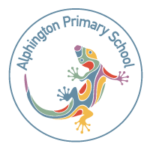Central to Learning
The study of English is central to the learning and development of all young Australians. It helps create confident communicators, imaginative thinkers and informed citizens. It is through a sound command of English that individuals are equipped to analyse, understand, communicate and build relationships with others and with the world around them, and to take responsibility for Australia’s future.
Reading
Alphington Primary utilises the resources from the Literacy Toolkit to provide a balanced approach to the teaching of reading. It includes:
- providing a range of explicit teaching opportunities during modelled, shared, guided and independent reading
- explicitly teaching phonemic awareness and phonics so students are able to identify the sounds of English and decode written text
- using strategies to explicitly teach comprehension strategies
- supporting students understanding, interpreting, critically analysing, reflecting upon, and enjoying written and visual, print and non-print texts
- reading and viewing a wide range of rich and authentic texts and media, including literary texts, short stories, poetry and plays as well as popular fiction and non-fiction works
- active engagement with texts during literature circles and Book Club sessions to develop knowledge about the relationships between texts and the contexts in which they are created
- providing opportunities for whole class, small group and individual instruction
- carefully monitoring students’ reading progression and establishing individual reading goals which are revisited regularly as part of our daily reading program.
Writing
At Alphington Primary we have adopted the Writer’s Workshop model which provides a balance of choice writing and teacher led, structured lessons. Our writing program encompasses:
- knowing and understanding the Victorian Curriculum, aiming to broaden students’ experiences through exposure to rich literature
- using High Impact Teaching Strategies to support the learning process
- engaging students in the writing process and a range of genres and forms through the APS Writers Workshop Model
- inspiring the students by modelling purposeful writing in multiple contexts
- thinking aloud when writing and discussing the choices we make to achieve purpose and audience
- empowering students through choice and authentic experiences to write in different genres
- explicitly teaching skills appropriate for the age and developmental stage
- knowing our writers’ next point of learning and targeting these through evidence-based teaching strategies - modelled, shared, guided and interactive writing, conferences, author’s chair and peer feedback
- ensuring that the next point of learning requires further sophistication and complexity
- looking at a broad range of mentor texts and analysing how the author has crafted their piece
- celebrating each and every student’s writing and providing timely feedback.
Speaking & Listening
This dimension refers to the various formal and informal ways oral language is used to convey and receive meaning. It involves the development and demonstration of knowledge about the appropriate oral language for particular audiences and occasions, including body language and voice. It also involves the development of active-listening strategies and an understanding of the conventions of different spoken texts including everyday communication, group discussion, formal presentations and speeches, storytelling and negotiating.
Students at APS are provided with many opportunities, both formal and informal, to develop their speaking and listening skills. These include working in teams in class, formally presenting work to an audience and leading or speaking at school events. In addition, our senior students develop their debating skills through the creation of a Year 6 parliament. Throughout the course of the year staff and students work together to develop and review Speaking and Listening goals.



